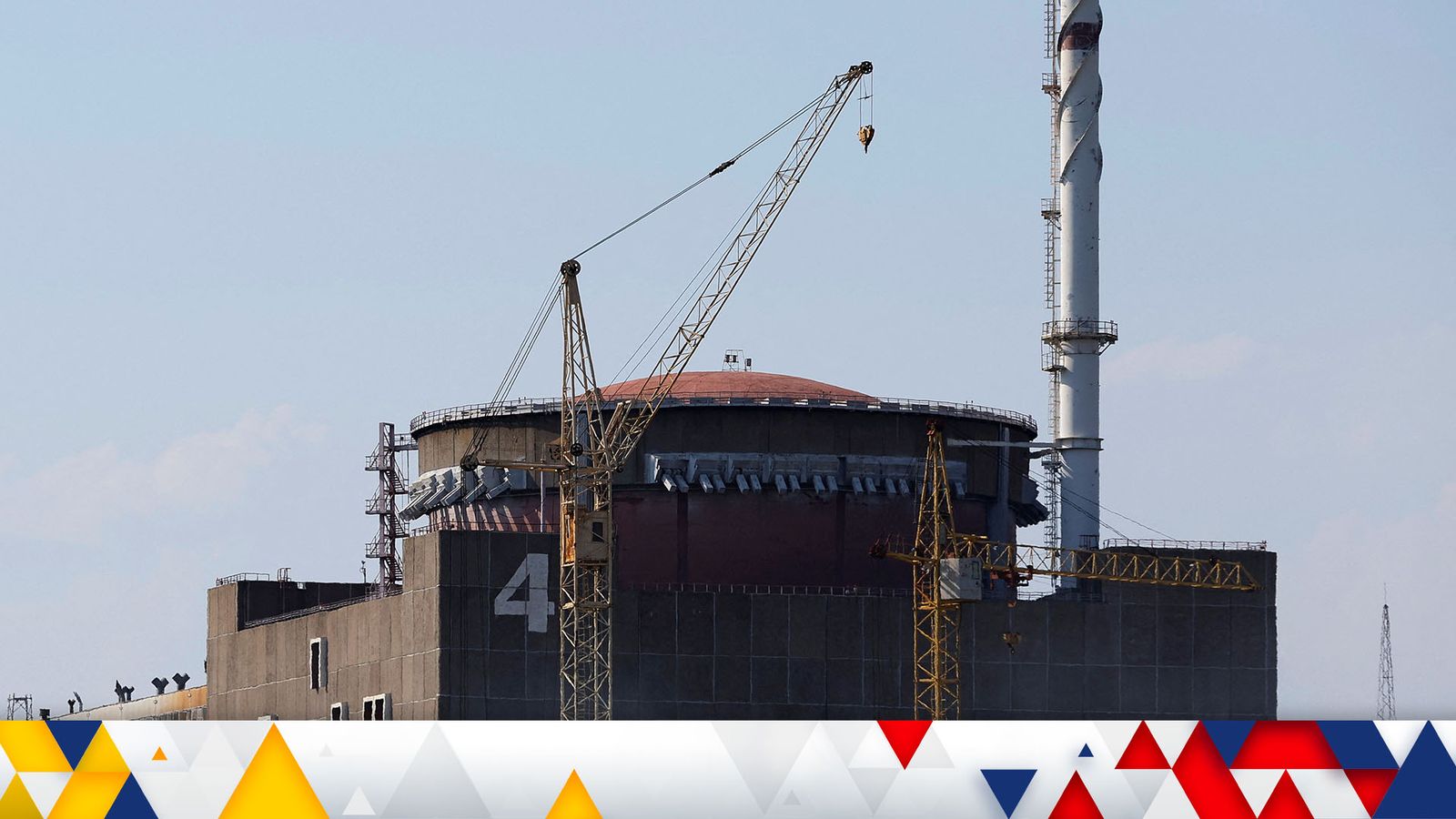Ukraine claims ‘explosive devices’ planted on roof of Zaporizhzhia nuclear facility

Ukraine has claimed “explosive devices” have been placed on the roof of the Zaporizhzhia nuclear power station, as Volodymyr Zelenskyy warned of “dangerous provocations” at the facility.
The Ukrainian armed forces quoted “operational data” as saying that the devices had been placed on the roof of the plant’s third and fourth reactors on Tuesday, adding that an attack was possible “in the near future”.
Ukrainian president Mr Zelenskyy said: “Now we have information from our intelligence that the Russian troops have placed objects resembling explosives on the roof of several power units of the Zaporizhzhia nuclear power plant.
“Perhaps to simulate an attack on the plant. Perhaps they have some other scenario.”
Throughout the war, nuclear experts have repeatedly warned of a potential disaster at the Russian-occupied plant in southern Ukraine.
An adviser of Russia’s nuclear power operator Rosenergoatom said Ukraine planned to drop ammunition laced with nuclear waste transported from another of the country’s five nuclear stations on the plant.
Renat Karchaa, an adviser to the head of Rosenergoatom, was quoted by Russian media as saying that Ukraine’s military will try to attack the plant on Wednesday “using long-range precision equipment and kamikaze attack drones”.
Both Mr Karchaa and Ukraine provided no evidence for their assertions.
Speaking from Ukraine, Sky’s international affairs editor Dominic Waghorn said: “Whenever the Russians accuse Ukrainians of preparing to do something it’s often a sign they’re about to do it themselves as we saw with the Kakhovka Dam.”
Advertisement
He added that the recent warnings have led to a number of Ukrainians trying to leave the country with queues at the border crossing to Moldova running for two miles.
The Ukrainian government has also issued guidance on what to do in the event of a nuclear emergency.
Moscow and Kyiv have repeatedly accused the other of shelling around the facility, which is Europe’s largest nuclear plant with six reactors.
Mr Zelenskyy said over the weekend that a “serious threat” remains at the plant, with Ukrainian intelligence suggesting Russia was “technically ready” to provoke a localised explosion at the facility.
Please use Chrome browser for a more accessible video player
3:38
Ukraine nuclear power plant fears
It also claimed that the number of Russian personnel at the plant is gradually being reduced – Moscow has not commented on the apparent drawdown.
The UN’s nuclear watchdog, the International Atomic Energy Agency (IAEA), has tried to clinch a deal to ensure the plant is demilitarised and reduce risks of any possible accident.
Last week, it said it had “so far found no visible indications of mines or other explosives currently planted” at the facility, but said it was aware of the reports and needed additional access to carry out further such checks at the site.
The biggest nuclear risk at the plant is from overheating nuclear fuel, which could happen if the power that drives the cooling systems is cut or if there is not enough water to supply the cooling systems.
Shelling has repeatedly cut power lines.